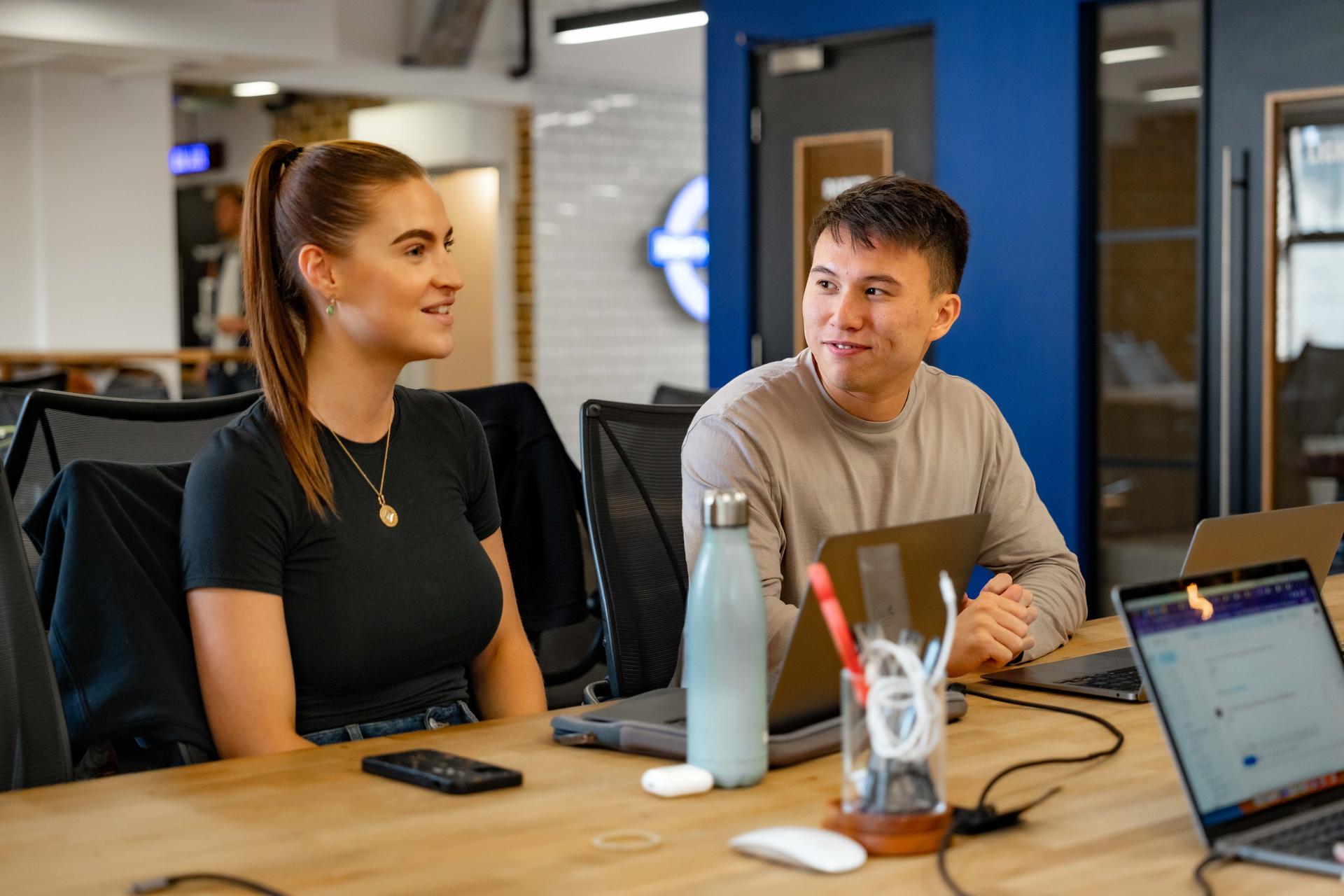What today’s Early Careers populations really need—and how companies can actually deliver it
In this Wiser Expert feature, we sit down with Charlie Manthorp, our Early Talent Development Lead who’s spent the past decade designing, delivering, and transforming development journeys for top companies across the UK.
From launching professional apprenticeships at Multiverse to delivering complex transformation programmes at Accenture. Today, at Wiser, he leads our external learning & development team specialising in high-performance skills programmes that help early talent cohorts unlock their full potential and thrive in the workplace.
Why early talent development matters more than ever:
Each year, more companies express concern that graduates and apprentices aren’t ready for work. But readiness isn’t about subject knowledge or a polished CV. It’s about self-awareness, resilience, interpersonal skills and adaptability, what Charlie calls the “human skills”, that make or break success in the first 6–12 months of a career.
In 2025, 54% of employers reported that graduates underperformed in self-awareness. Resilience followed closely, flagged by 46% of employers. And for school leavers, the pattern’s the same. These aren’t isolated incidents; they’re systemic trends.
This is where early talent development becomes critical.
Charlie explains that when early talent aren’t showing up with the behaviours and mindset companies expect of them, you can’t just “hope for the best”. Instead, you need to give them a structured, human-centred space to explore who they are, where they’re at, and where they’re going. The best development programmes don’t try to fix people, they create the conditions for meaningful reflection, peer-based practice and safe-to-fail spaces.
“Development programmes should create a container for Early Talent to explore topics for themselves. Understanding where they're currently at, discussing this with their peers and setting actions to improve are the ingredients for success.”
It’s not about industry, it's about culture and context:
There’s a tendency to assume that different industries require different approaches to development. But Charlie sees the variation as more about role exposure and organisational culture than sector labels.
Client-facing roles, for example, often build interpersonal and communication skills faster than internal ones, simply because of the day-to-day exposure. Regarding culture, some companies will frame their entry schemes as a “future leader programme”, attracting highly ambitious candidates already with multiple internships and work experiences under their belt. Other organisations focus on targeting talent with the raw ingredients to become high performers, but as of yet have less tangible evidence of achievement.
That’s where social capital comes in. A student who’s never had exposure to corporate working environments may not lack ability, but they do lack context. They haven’t grown up around the language, norms or network that others take for granted. This matters when designing development.
Charlie encourages leaders to look beyond experience and consider what people have—or haven’t—had access to. True equity in development starts with acknowledging this invisible gap and rewarding those who demonstrate the will and motivation to succeed.
Designing a programme that actually sticks:
Start with a proper kickoff
The beginning of any development journey sets the tone and Charlie believes this first moment should feel significant. It’s more than a calendar invite or a workshop timetable. It’s a day that should be carefully curated to feel valuable, inspirational, and memorable.
It needs to happen in person, and ideally, it should blend structured learning with opportunities to build community. Whether that’s through informal moments, social elements or storytelling that helps the group feel part of something.
“Having an impactful kickoff in person should have magical moments that go beyond the training. Prioritise the social components and seek to create meaningful connections between your attendees.”
Make the journey transparent
For development to be best engaged with, attendees should be informed not just about the learning journey ahead, but also the road to that shaped it. Encourage L&D teams to share the behind-the-scenes thinking—how the programme came to be, why decisions were made, and what the overall goals are.
This builds trust, curiosity and connection. It turns learners into participants, not just attendees.
Prioritise peer connection
Peer-to-peer learning isn’t just nice to have, it should be central to the plan. When people have opportunities to connect, reflect, and share openly, the learning experience deepens. But those moments won’t happen by accident. They need to be designed into the programme.
That could mean allocating time for group reflection, creating buddy systems, or building in moments between modules for conversations around development through facilitated discussions and group coaching. The result? A stronger sense of belonging, and more personal ownership of learning.
Even better - involve your previous cohorts in the regular review and evolution of your programmes, to keep the sessions relevant and embed the learnings from the people who the development is for.
Blend your learning formats
One-off workshops won’t do the job alone. Development sticks when it’s reinforced through different formats, whether that’s digital reminders, short reflection tasks, or curated resources shared in the flow of work.
A blended learning approach creates rhythm and space for growth. It doesn’t overload—it reinforces.
End with intention
Just like the kickoff, the close should feel special. It’s a chance to reconnect the group, celebrate successes, and set them up for what comes next. According to Charlie, that closing moment can be just as important as the start—it sets the tone for how learners carry their development forward into the wider business.
A big misconception about early talent development:
Please don’t make this mistake: Trying to tell people how to be more resilient or self-aware. This is not something you can teach through talking only.
“People say: they’re not confident, we need to teach them to be confident. They’re not resilient, we need to make them more resilient. But have you asked them what they’ve been through? What they’re scared of? What they’re holding back?”
The most powerful development work isn’t about fixing. It’s about asking, listening and fostering a psychologically safe space to let the conversation take shape.
Facilitators matter. Safe environments matter. The structure of the session, what’s asked, what’s shared, how feedback is handled, all of it plays a part in whether people open up. And once they do, they can experiment. Try new behaviours. Set actions. Come back. Share what worked and what didn’t.
That’s when development becomes real.
Where it’s all going next:
Charlie sees a future where ETD becomes even more central to how businesses think about performance, retention and inclusion.
AI and digital learning will increase, but so will the need for human connection.
Workshops will evolve into group coaching spaces, focused less on content delivery and more on facilitated reflection, as knowledge becomes less valuable and skills and behaviours take centre stage.
Peer learning, storytelling and social accountability will become core to how we build and measure growth.
And more employers will finally recognise that investing in ETD is not just the right thing to do, it's the smart thing. 48% of employers are increasing investment in early career development vs last year. Expect this to continue rising.
“The best companies are asking: how do we create environments where people can get better by being more of themselves? Spaces where they want to speak up, try, and feel supported when they fail? That’s the future.”
The question now isn’t whether development is worth it. It’s whether you’re building something that actually works.
Want to learn more about Wiser’s Early Talent programmes?




